Continue to review taxable entities
At the Forestry Sector Meeting on the morning of April 4, Mr. Ngo Sy Hoai, Vice President and General Secretary of the Vietnam Timber and Forest Products Association, said that members of the association all determined the spirit of "not being sad or crying" and "must be brave" after the United States announced the corresponding tax rate for goods originating from Vietnam at 46%.

Deputy Minister Nguyen Quoc Tri chaired the forestry sector meeting. Photo: Bao Thang.
Compared to other industries, wood and wood products are among the groups forecast to be most affected by the new tax. In 2024, wood product exports to the United States will account for over 55% of the industry's total turnover, nearly double the average for the entire economy (about 30%).
Many wood products exported from 1 billion USD or more, such as: chairs reached 2.78 billion USD (accounting for 31.6% of the value of wood exports to the US); other wooden furniture about 1.53 billion USD (accounting for 17.4%); wooden bedroom furniture 1.19 million USD (equivalent to 13.5%); wooden kitchen furniture 1 billion USD (accounting for 11.5%)...
This entire group belongs to refined wooden products, with an export value of 8 billion USD to the United States in 2024. From the beginning of 2025, the United States will open an investigation into high-value wooden products from Vietnam, based on Article 232 of the Trade Expansion Act.
According to Mr. Ngo Sy Hoai, the association has anticipated the possibility of the US raising taxes on these products, but the forecast is only at 25%.
"The imposition of a 46% reciprocal tax surprised all of us," he shared, adding that as soon as the information was received on the morning of April 3, the entire association reviewed the information and contacted relevant agencies to grasp the details of the situation.
After one day of work, the association found that industrial wood products, with an export value of about 800 million USD to the US in 2024, were not included in the group of subjects subject to this reciprocal tax (which began to be applied from April 9). "We are quite concerned about this," Mr. Hoai admitted.
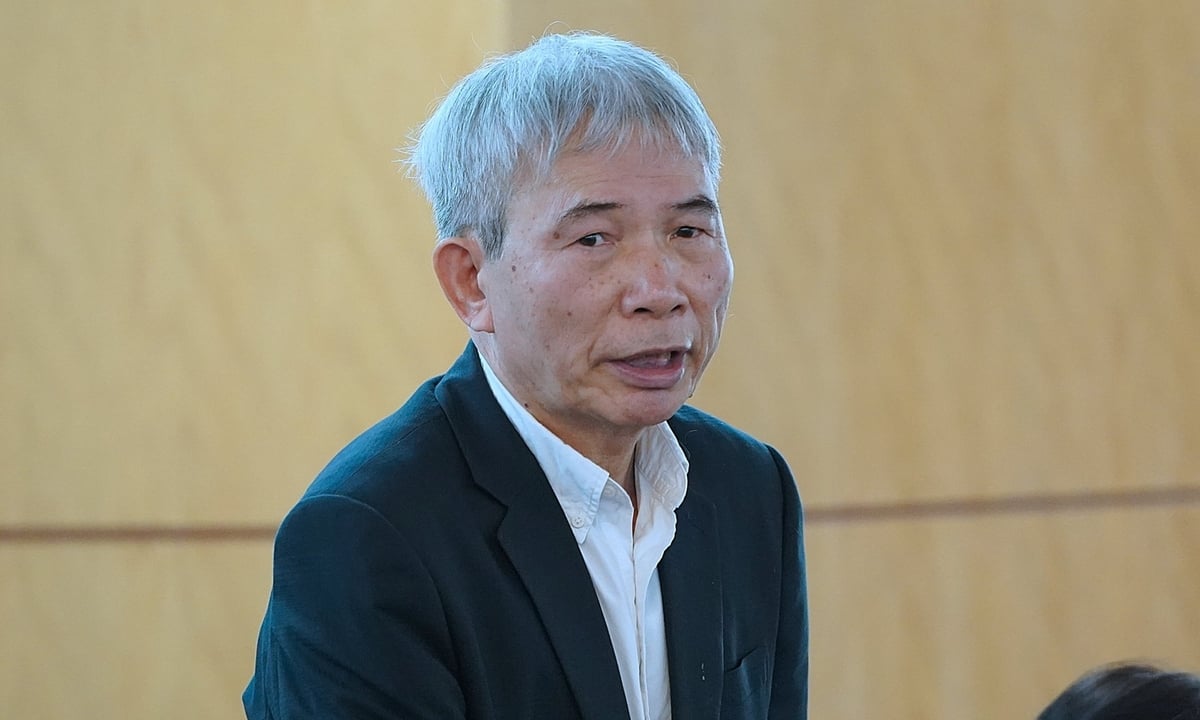
Mr. Ngo Sy Hoai: 'The Association is concerned about the list of goods subject to reciprocal tax'. Photo: Bao Thang.
Providing more information on the above issue, a representative of the Department of International Cooperation ( Ministry of Agriculture and Environment ) said that early in the morning of April 4, the Department contacted the US side and learned that there were many items that President Donald Trump wanted to raise tariffs on, but were not yet on the list subject to reciprocal taxes as announced on April 2.
According to the Department of International Cooperation, the US will continue to review the items subject to tax, based on President Trump's instructions. "The wood industry needs to stay in touch to continuously update information about this new tax, and promptly have an adjustment plan," he said.
Proposal to change growth model
There have been initial estimates of the damage to the wood industry if it is subject to a 46% tax rate. Vice President Ngo Sy Hoai said that businesses are still waiting for the Government to negotiate so that the US can consider reducing trade barriers, while also having policies that harmonize the interests of both sides, such as delaying the time to impose taxes...
"For a long time, the US has had relatively easy regulations on wood, so it is difficult for wood industry businesses to avoid negligence," the leader of the Vietnam Timber and Forest Products Association commented, adding that the immediate challenge is also the motivation for businesses to radically change their growth model.
Previously, businesses often paid much attention to export value growth, forgetting the goal of profit growth, while this is the factor that ensures qualitative growth for businesses.
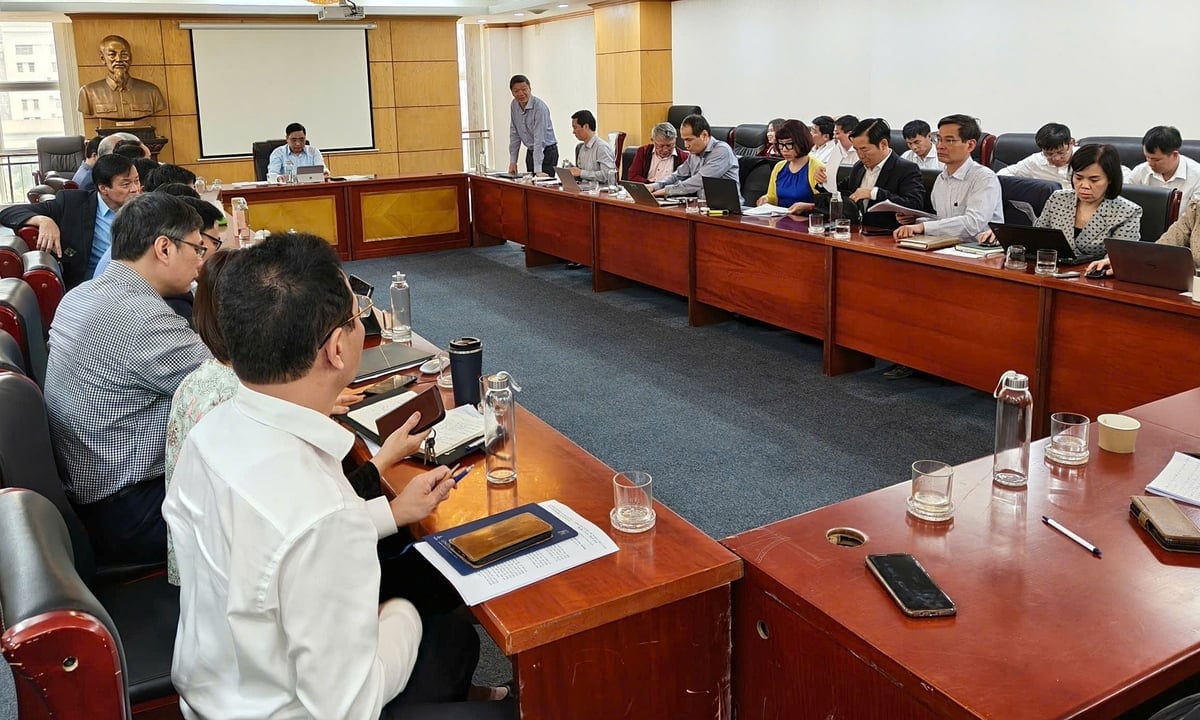
Delegates discuss goals for the industry in the coming time. Photo: Bao Thang.
Another problem is that businesses seem to be "forgetting" potential markets such as Japan (currently Vietnam mainly exports pellets and wood chips to this country), or China (wood chips). If actively linking with partners from these countries, the wood industry can create more room.
Finally, increase the processing content. Previously, export enterprises mainly received processing orders, with low added value due to following the partners' pre-made orders. Mr. Hoai believes that if it is possible to add a design step, or more sophisticated processing, the product will have more value, affirming the Vietnamese brand in the international market.
In the long term, Mr. Hoai recommended that the Ministry of Agriculture and Environment, the Department of Forestry and Forestry Research study policies to support businesses investing in the United States. This is something that President Trump welcomes and Vietnam has many opportunities, because the demand for wood products here is very large. Some products such as Vietnamese wooden cabinets account for more than 30% of the US market.
In addition, the US exempts taxes on certain items that meet a certain localization rate, or have raw materials originating from the US. "If we import raw wood from the US, process it, and then export it back, we can enjoy tax incentives," Mr. Hoai said.
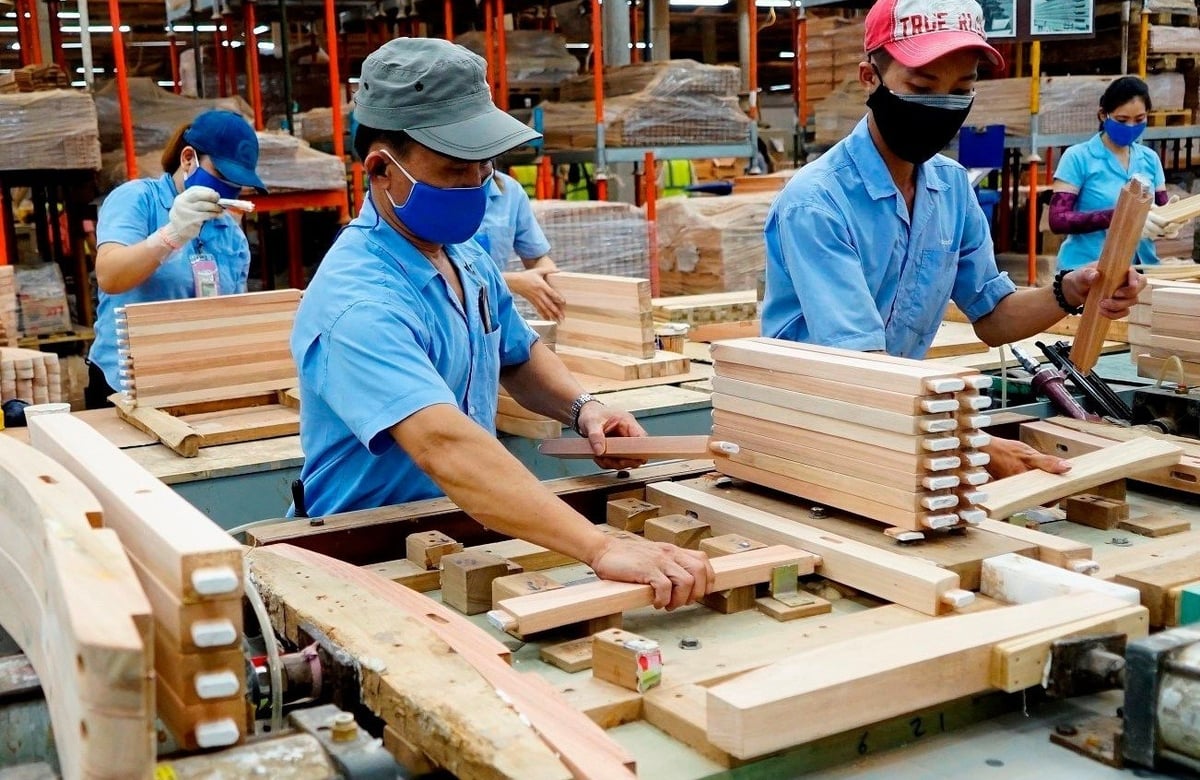
The wood industry is among the groups most affected by reciprocal taxes. Photo: Viforest.
Committed to accompanying businesses, Deputy Minister Nguyen Quoc Tri directed the Forestry Department and Forest Rangers to promptly compile data and report on issues related to reciprocal taxes. In particular, clarify how wood industry businesses will be affected by the new tax.
"We will consult with the Government and soon work with associations to find appropriate solutions," the Deputy Minister emphasized, and at the same time directed the Department of International Cooperation to promptly inform international friends, including US partners, about Vietnam's efforts in publicizing and making transparent the origin and source of goods, as well as balancing two-way trade.
In April, the Department of Forestry and Forest Protection will coordinate with the Vietnam Timber and Forest Products Association to organize a wood industry conference. Here, the parties will jointly assess the detailed impacts and propose solutions to respond to US policy adjustments; closely follow developments in the US Department of Commerce (DOC) initiating an investigation into the threat to national security from imports of logs, sawn timber and derivative products.
In the first two months of 2025, the total export turnover of wood and wood products reached 2.45 billion USD, an increase of 9.4% over the same period in 2024. Of which, the United States is still the leading market, with 1.3 billion USD, an increase of 9.5% over the same period in 2024.
One of the key tasks of the forestry sector is to advise, propose and issue legal documents. In the first 3 months of 2025, the Department of Forestry and Forestry coordinated with the Department of Nature Conservation and Biodiversity to complete the draft Decree amending Decree 06/2019/ND-CP and Decree 160/2013/ND-CP on the management of rare and endangered wild animals and plants.
Source: https://nongnghiep.vn/truoc-tuyen-bo-ap-thue-doi-ung-46-cua-my-doanh-nghiep-go-khong-bi-luy-than-khoc-d746530.html


![[Photo] More than 124,000 candidates in Hanoi complete procedures for the 2025 High School Graduation Exam](https://vphoto.vietnam.vn/thumb/1200x675/vietnam/resource/IMAGE/2025/6/25/fa62985b10464d6a943b58699098ae3f)

![[Photo] First training session in preparation for the parade to celebrate the 80th anniversary of National Day, September 2nd](https://vphoto.vietnam.vn/thumb/1200x675/vietnam/resource/IMAGE/2025/6/25/ebf0364280904c019e24ade59fb08b18)

![[Photo] General Secretary To Lam works with the Standing Committee of Quang Binh and Quang Tri Provincial Party Committees](https://vphoto.vietnam.vn/thumb/1200x675/vietnam/resource/IMAGE/2025/6/25/6acdc70e139d44beaef4133fefbe2c7f)

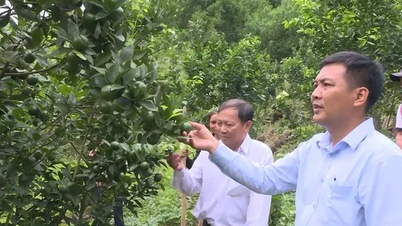

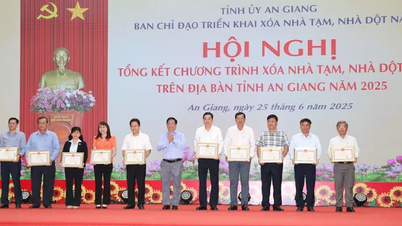
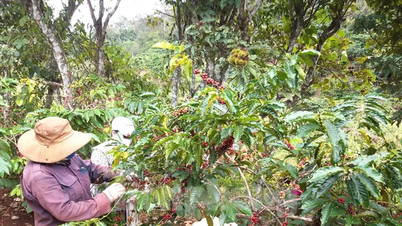
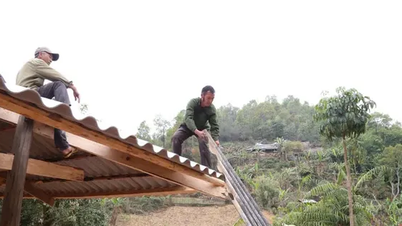







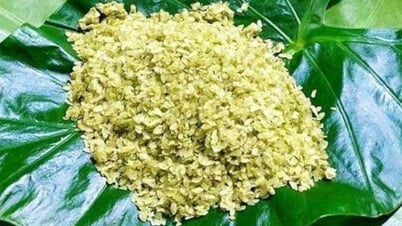

















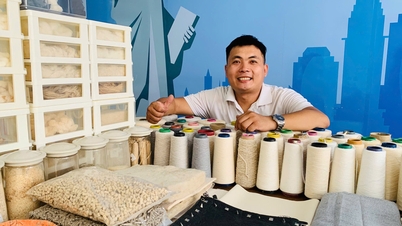

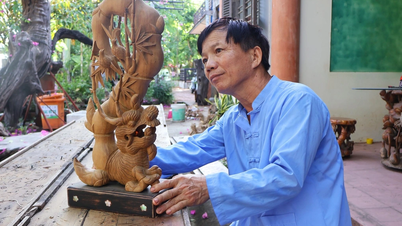































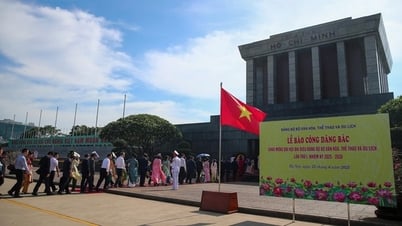
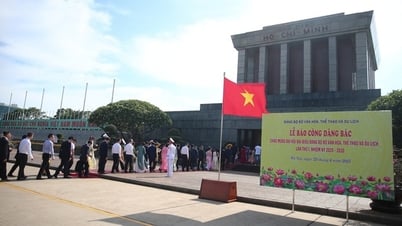



























Comment (0)